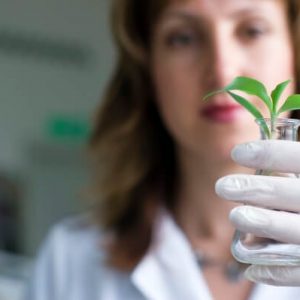
The interpretation of the Biotech Directive (Directive 98/44/EC of the European Parliament and of the Council of 6 July 1998 on the legal protection of biotechnological inventions) is being debated as a result of a statement issued by the European Commission (EC). Frits Michiels, patent attorney at V.O., qualifies the commotion: ‘The statement by the Commission has no immediate legal effect. I certainly do not envisage any changes for the near future.’
Patents on ‘improved’ plants will no longer be possible: that was the tenor of the reporting in various media in mid-November. Frits Michiels explains: ‘The reporters based their information on a notice from the European Commission, which provided an interpretation of a number of provisions from the 1998 Directive.’ The Commission stated therein that ‘the EU legislator’s intention when adopting (the Biotech Directive) was to exclude from patentability products (plants/animals and plant/animal parts) that are obtained by means of (essentially) biological processes’. Michiels is well-informed in the domain of biotechnology and is surprised at the European Commission’s interpretation. At the same time, he emphasises that the media have drawn hasty conclusions: ‘Formally, there have been no changes at all, the EC has only provided an explanation of a directive. That means nothing for the time being. What it has done is give rise to another heated debate.’
Non-existent contradiction
In the debate, opponents of plant patents argue that people and businesses are cut off from essential sources by patents on plants. That is not an accurate representation of the reality, emphasises Michiels. For example, the original plant in which the new property is found remains available to all, and the new patented property is available under licence. The patent lapses after twenty years and anyone may start making use of the property without hindrance. The protection of an invention is in fact important for the existence of a healthy biotech sector, because that is the only way companies will continue to invest in research.
Where do we go from here?
The explanation by the European Commission has no immediate legal implications, nor does it have any effect on the European Patent Convention. Everything will therefore stay as it was for the time being. ‘The Directive functioned well, for that matter, and it was clear for everyone. It is possible that action groups will see the interpretation by the European Commission as cause for initiating legal proceedings in order to obtain clarity regarding patentability and the enforcement of a granted European patent. This would be subsequently brought before the Court of Justice of the European Union. But it will be at least 2020 before we reach that stage.’
What is the Biotech Directive?
The 1998 Biotech Directive aims to harmonise the regulations for patent protection of biotechnology inventions in all countries of the EU. The Directive expressly states that ‘inventions which concern plants or animals shall be patentable if the technical feasibility of the invention is not confined to a particular plant or animal variety’.
Read more information on the website of the EPO.
Do you have any questions about the Biotech Directive? Contact Frits Michiels: f.michiels@vo.eu

